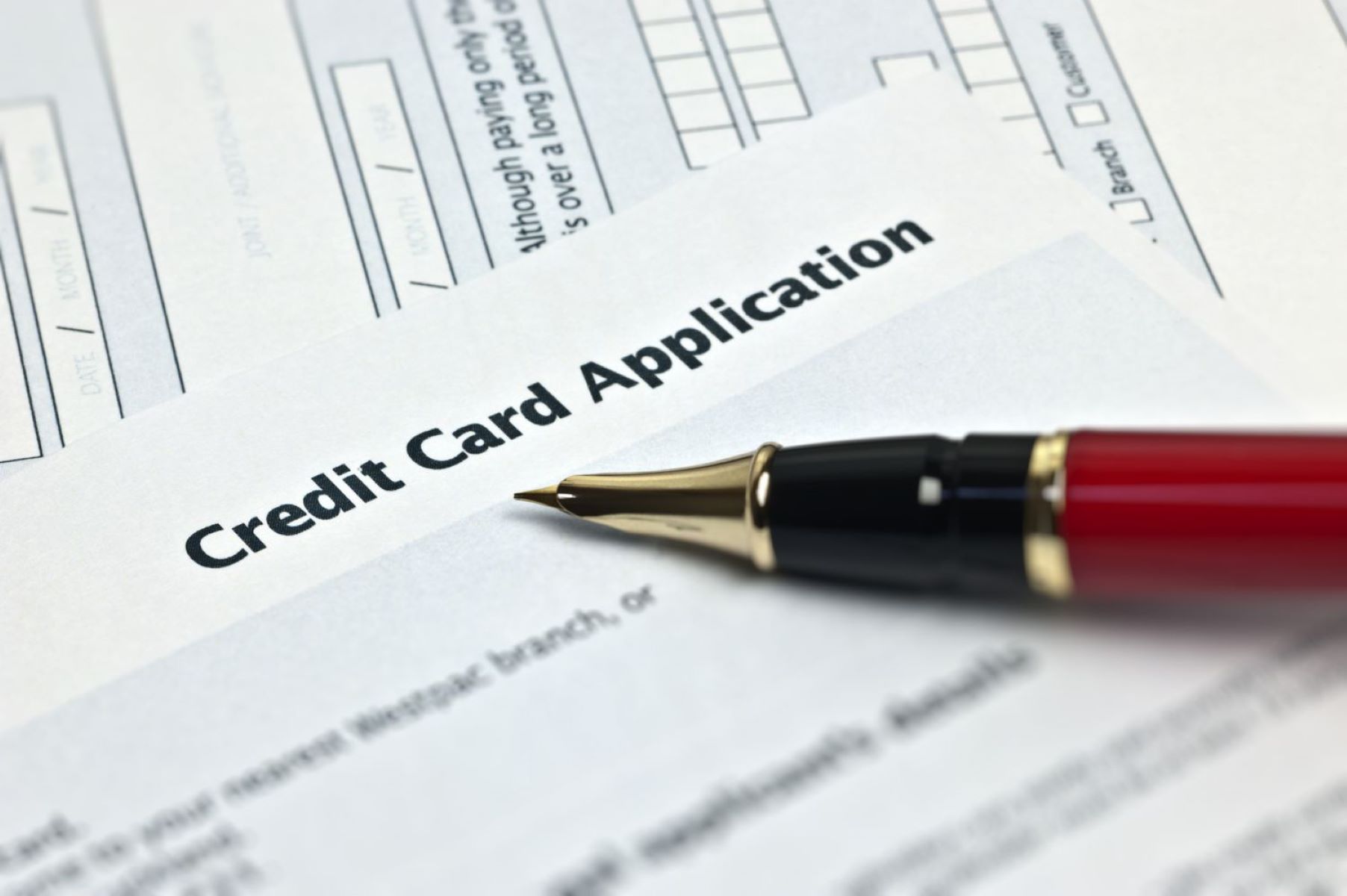Home>Finance>How To Apply For Government Work With Joint Ventures


Finance
How To Apply For Government Work With Joint Ventures
Modified: January 15, 2024
Looking to apply for government work in finance? Learn how to navigate the application process and secure a job with joint ventures in the public sector.
(Many of the links in this article redirect to a specific reviewed product. Your purchase of these products through affiliate links helps to generate commission for LiveWell, at no extra cost. Learn more)
Table of Contents
- Introduction
- Understanding Joint Ventures
- Benefits of Government Work with Joint Ventures
- Eligibility Criteria for Government Work with Joint Ventures
- Finding Opportunities for Government Work with Joint Ventures
- Preparing Your Application for Government Work with Joint Ventures
- Submitting Your Application for Government Work with Joint Ventures
- Evaluating and Negotiating Joint Ventures for Government Work
- Conclusion
Introduction
Welcome to the world of government work with joint ventures! If you’re looking to expand your business opportunities and tap into a lucrative market, government contracts can be a game-changer. And when it comes to government work, joint ventures offer a unique and advantageous approach.
A joint venture is a strategic alliance between two or more companies to collaborate on a specific project or contract. In the context of government work, joint ventures allow businesses to combine their expertise, resources, and capabilities to meet the requirements of government contracts effectively.
In this article, we will explore the benefits of government work with joint ventures, eligibility criteria, finding opportunities, preparing and submitting applications, as well as evaluating and negotiating joint ventures for government contracts.
So, whether you’re a small business owner looking to break into the government sector or an established company seeking to diversify your revenue streams, this guide will provide you with the insights and strategies to navigate the world of government work with joint ventures.
Before we dive into the details, it’s important to understand why government contracts are worth pursuing and how joint ventures can give you a competitive edge.
Government contracts are highly sought after due to their stability, long-term nature, and substantial financial benefits. Working with the government can provide your business with a steady stream of revenue and the opportunity to showcase your capabilities to a wide audience. However, government contracts often come with strict requirements and a competitive bidding process.
Joint ventures offer a solution to these challenges by allowing businesses to pool their resources and expertise. By partnering with other companies, you can enhance your capabilities, increase your chances of meeting government contract requirements, and ultimately secure more lucrative opportunities.
In the following sections, we will delve deeper into the benefits of government work with joint ventures and guide you through the process of successfully applying for and participating in government contracts. So, let’s get started on this exciting journey!
Understanding Joint Ventures
Before diving into the world of government work with joint ventures, it’s important to have a clear understanding of what a joint venture entails. A joint venture is a strategic partnership between two or more independent companies that come together for a specific project or business endeavor. The companies collaborate and contribute their resources, expertise, and capabilities to achieve a common goal.
In the context of government work, joint ventures provide a powerful mechanism for businesses to combine their strengths and overcome limitations. By pooling resources, companies can take on larger-scale projects and access new markets that may have been out of reach as individual entities.
There are different types of joint ventures, including equity joint ventures and contractual joint ventures. In equity joint ventures, companies create a separate legal entity to collectively undertake the project. Each company has a share in the ownership and profits of the joint venture. In contractual joint ventures, companies collaborate through a contractual agreement without forming a separate legal entity.
Joint ventures offer several advantages for businesses seeking government work:
- Enhanced expertise: By partnering with other companies, you can leverage their specialized knowledge, skills, and experience. This allows you to offer a comprehensive and well-rounded solution to government agencies.
- Increased resources: Joint ventures provide access to additional resources, such as equipment, facilities, and financial capital. This enables you to take on more significant projects or meet the stringent requirements of government contracts.
- Expanded market reach: Collaborating with other companies opens doors to new markets and customer segments. Joint ventures can help your business tap into government contracts that may have been otherwise inaccessible.
- Shared risks and costs: Government contracts often come with high risks and costs. By entering into a joint venture, these burdens are shared among the participating companies, reducing individual exposure.
- Better credibility: When multiple companies come together, it can enhance your business’s reputation and credibility. Joint ventures can showcase a collective track record of success and demonstrate the ability to deliver quality results to government clients.
It’s important to note that joint ventures require careful planning and effective collaboration. A well-defined legal agreement is essential to outline the responsibilities, rights, and obligations of each party. Clear communication and decision-making processes are also vital for the success of a joint venture.
Now that you have a solid understanding of joint ventures, let’s explore the unique benefits they offer when it comes to government work in the next section.
Benefits of Government Work with Joint Ventures
Government work with joint ventures offers numerous advantages that can propel your business to new heights. Let’s explore the key benefits of pursuing government contracts through joint ventures:
- Access to Larger Contracts: Government contracts often involve large-scale projects that require substantial resources and capabilities. By forming a joint venture, your business can combine forces with other companies to take on more extensive and more complex contracts that may have been out of reach individually.
- Enhanced Expertise: Joint ventures allow you to tap into the diverse expertise of partner companies. Each company brings their unique skills and knowledge to the table, creating a collective powerhouse of capabilities. This increased expertise gives your joint venture a competitive edge when bidding for government contracts and ensures you can deliver exceptional results.
- Expanded Market Reach: Collaborating with other companies through a joint venture opens up new market opportunities. Government work often requires specialized knowledge and connections, and partnering with companies that have existing relationships with government agencies can significantly increase your chances of securing contracts and accessing new markets.
- Shared Resources and Costs: Taking on government contracts can involve significant financial and operational risks. By forming a joint venture, these risks and costs are distributed among the participating companies. This shared burden not only reduces individual exposure but also allows for the pooling of resources and the ability to invest in specialized equipment, technology, and talent.
- Improved Competitive Advantage: Joint ventures can give you a leg up over competitors when bidding for government contracts. The combined expertise, resources, and track record of success demonstrated through the joint venture can make your bid more compelling to government agencies. This increased competitiveness can lead to a higher win rate and a stronger position in the government sector.
- Stronger Networking Opportunities: Joint ventures provide an excellent platform for building relationships and networking within the government sector. Through partnerships with other companies, you can gain access to industry events, conferences, and trade shows where you can connect with government officials, decision-makers, and potential clients. These networking opportunities can open doors to new contracts and long-term partnerships.
It’s important to note that while joint ventures offer significant benefits, they also require diligent planning, clear communication, and strong collaboration. A well-defined agreement that outlines the roles, responsibilities, and decision-making processes of each partner is crucial for a successful joint venture in government work.
Now that we have explored the many advantages of government work with joint ventures, let’s move on to the eligibility criteria for participating in these lucrative contracts in the next section.
Eligibility Criteria for Government Work with Joint Ventures
Participating in government work with joint ventures requires meeting certain eligibility criteria. These criteria ensure that companies are qualified and capable of delivering the required services or products to government agencies. While specific eligibility requirements may vary depending on the government agency and the nature of the contract, there are some common factors to consider:
- Legal Entity: To be eligible for government work with joint ventures, each participating company must be a legally recognized entity. This could be a corporation, limited liability company (LLC), partnership, or any other valid legal structure. Companies must have all the necessary licenses and certifications required by the government agency.
- Past Performance: Government agencies often evaluate the past performance of companies before awarding contracts. Participating companies in a joint venture must have a proven track record of successful performance in relevant fields. This includes demonstrating the ability to meet deadlines, deliver high-quality work, and adhere to applicable regulations and standards.
- Financial Stability: Joint ventures must have a solid financial standing and be able to demonstrate their financial capacity to handle government contracts. This includes having access to necessary capital, resources, and funding to support the project’s requirements. Financial statements, credit ratings, and banking references may be requested to evaluate the financial stability of the joint venture.
- Relevant Experience: The participating companies in a joint venture must have relevant experience in the field or industry related to the government contract. This includes a demonstrated understanding of the specific requirements, regulations, and standards associated with the project. Experience can be showcased through case studies, project portfolios, client testimonials, and references.
- Clearance and Security: Depending on the nature of the government work, joint ventures may need to meet certain clearance and security requirements. This is particularly true for contracts involving sensitive information or work that directly impacts national security. Companies must ensure that all required security clearances and protocols are in place before bidding on such contracts.
- Capability and Capacity: Joint ventures must be able to demonstrate that they have the necessary capability and capacity to successfully execute the government contract. This includes having access to adequate resources, equipment, technology, and a qualified workforce. Companies should highlight their strengths and provide a clear plan for how they will meet the project’s objectives and deliverables.
It’s important to thoroughly review the eligibility requirements outlined in the specific solicitation or request for proposal (RFP) for the government contract. Each government agency may have its own set of criteria and evaluation factors. Collaborating with an experienced bid consultant or legal professional can help ensure that your joint venture meets all eligibility requirements and maximizes its chances of success.
Now that we have covered the eligibility criteria, let’s move on to the next section, where we will explore how to find opportunities for government work with joint ventures.
Finding Opportunities for Government Work with Joint Ventures
Once you understand the benefits of government work with joint ventures and meet the eligibility criteria, the next step is to find opportunities to bid on government contracts. Here are some strategies to help you locate and pursue government work:
- Research Government Contract Databases: Government agencies often publish their contract opportunities on dedicated online databases. Websites like Beta.Sam.gov (formerly known as FedBizOpps) and USASpending.gov provide a comprehensive listing of government contracts. Use these databases to search for contracts relevant to your business, filtering by location, industry, and contract size.
- Attend Government Procurement Events: Government procurement events, conferences, and industry trade shows are valuable networking opportunities. These events bring together government officials, procurement officers, and fellow contractors. Engage in conversations, learn about upcoming projects, and establish connections that may lead to potential joint venture opportunities.
- Establish Relationships with Government Agencies: Building relationships with government agencies is crucial for securing government work. Reach out to procurement officers and attend networking events hosted by government agencies. Establishing a rapport and demonstrating your capabilities can increase your chances of being invited to submit proposals or receive direct solicitations.
- Collaborate with Industry Associations: Joining industry associations related to your field can provide access to valuable resources and partnerships. These associations often have connections with government agencies and can facilitate networking opportunities. Participating in collaborative efforts within these associations can lead to joint venture opportunities for government contracts.
- Utilize Small Business Programs: Government agencies often have programs dedicated to promoting small and disadvantaged businesses. These programs may set aside contracts specifically for small businesses or require the involvement of small businesses in joint ventures. Familiarize yourself with these programs and leverage any certifications or designations that your business may qualify for.
- Monitor Subcontracting Opportunities: Many government contracts require prime contractors to include subcontractors in their bids. Monitor prime contractor solicitations and proactively reach out to them to express your interest in forming a joint venture or becoming a subcontractor. Networking with prime contractors can lead to collaborations on larger contracts.
It’s essential to stay proactive and regularly monitor contract opportunities. Set up alerts or notifications on government contract databases to receive updates on new opportunities that match your business’s capabilities. Remember to thoroughly review each contract’s requirements, deadlines, and evaluation criteria before deciding to pursue a joint venture opportunity.
In the next section, we will dive into the crucial aspects of preparing your joint venture’s application for government work to ensure a competitive bid.
Preparing Your Application for Government Work with Joint Ventures
When it comes to government work with joint ventures, a competitive and well-prepared application is essential to stand out from the competition. Here are some key steps to help you prepare your joint venture’s application for government contracts:
- Understand the Solicitation: Thoroughly review the solicitation documents provided by the government agency. This includes the request for proposal (RFP), contract specifications, evaluation criteria, and any amendments or addendums. Understand the project requirements, scope of work, and submission instructions to ensure compliance and a targeted response.
- Assign Roles and Responsibilities: Clearly define the roles and responsibilities of each member of the joint venture. Determine who will be responsible for specific activities such as proposal writing, financial planning, legal compliance, and project management. Effective collaboration and a well-structured team are crucial for a successful application.
- Develop a Comprehensive Proposal: Craft a detailed and comprehensive proposal that clearly demonstrates your joint venture’s ability to meet the government’s requirements. Highlight the collective expertise, resources, and track record of success that the joint venture brings to the project. Tailor your proposal to address the specific needs outlined in the solicitation.
- Showcase Past Performance: Provide evidence of your joint venture’s past performance in relevant projects. Highlight successful outcomes, customer satisfaction, and adherence to quality standards. Include case studies, testimonials, and references to showcase your track record of delivering high-quality work in similar government contracts.
- Detail Technical Approach: Outline your joint venture’s technical approach to meeting the project requirements. Describe the methodologies, strategies, and technologies you will employ to complete the work successfully. Clearly articulate how your joint venture’s combined expertise will result in a superior solution for the government agency.
- Submit a Competitive Cost Proposal: Prepare a competitive and well-structured cost proposal that clearly outlines the pricing for the services or products you will deliver. Take into account all direct and indirect costs, overhead expenses, and profit margins. Ensure your pricing aligns with the market while maintaining profitability for the joint venture.
- Emphasize Compliance: Government contracts often come with strict compliance requirements. Highlight your joint venture’s commitment to meeting all contractual obligations, regulations, and standards. Provide detailed plans and processes for quality assurance, risk management, safety measures, and any other relevant compliance factors.
- Review and Edit: Thoroughly review and edit your application before submission. Double-check for any errors, inconsistencies, or missing information. Have multiple team members review the application to ensure clarity and accuracy. A well-polished and error-free application increases your credibility and chances of success.
It’s crucial to start preparing your application well in advance of the submission deadline. Planning, collaboration, and attention to detail are key to a strong application. Keep in mind that government contracts are often highly competitive, and submitting a well-prepared application will significantly increase your chances of success.
In the next section, we will discuss the process of submitting your application for government work with joint ventures and what to expect during the evaluation phase.
Submitting Your Application for Government Work with Joint Ventures
Once you have prepared a competitive application for government work with joint ventures, it is time to submit your proposal to the government agency. The submission process is a critical step towards securing the contract. Here are some important points to consider:
- Follow the Submission Guidelines: Carefully review the solicitation instructions and ensure that you adhere to all submission guidelines. Pay attention to the format, document size, and required supporting documentation. Late or incomplete submissions may result in disqualification, so it is crucial to meet all the specified requirements.
- Gather the Required Documents: Organize all the necessary documents and supporting materials for your application. This may include your proposal, cost estimates, technical specifications, past performance records, certifications, and any other requested documentation. Keep everything well-organized and easily accessible for submission.
- Submit Electronically or Physically: Determine the method of submission specified in the solicitation. Some government agencies prefer electronic submissions through their online portals or email, while others may require physical copies to be mailed or hand-delivered. Ensure that you submit your application in the specified manner and within the designated timeframe.
- Maintain a Professional Presentation: Present your application in a professional and organized manner. Use clear and concise language, and ensure that all documents are properly formatted and free of errors. Consider using visual aids such as charts, graphs, or diagrams to enhance the clarity and impact of your proposal.
- Keep a Record of Your Submission: Maintain a record of your application submission, including date, time, and any confirmation emails or delivery receipts. This documentation can be valuable in case any issues or disputes arise regarding the submission process or timeline.
- Prepare for Possible Clarifications or Negotiations: After submitting your application, it is common for government agencies to request clarifications or engage in negotiations before finalizing the contract award. Be prepared to respond promptly and thoroughly to any inquiries or requests for additional information during this stage.
It is important to note that the evaluation and selection process for government contracts can take time. Government agencies meticulously review each application, evaluate proposals, conduct interviews or presentations, and consider factors such as price, technical approach, past performance, and compliance. Therefore, it is important to be patient and promptly respond to any requests or communications from the government agency.
Submitting a well-prepared and compliant application increases your chances of success. Even if you are not awarded the contract initially, the submission process serves as an opportunity to learn, refine your approach, and potentially position your joint venture for future government work.
In the next section, we will discuss the important aspects of evaluating and negotiating joint ventures for government work.
Evaluating and Negotiating Joint Ventures for Government Work
Once your joint venture’s application for government work has been submitted, the evaluation and negotiation phase begins. This stage involves a thorough assessment of your proposal and potential negotiations with the government agency. Here’s what you need to know about evaluating and negotiating joint ventures for government contracts:
- Evaluation Process: The government agency will review and evaluate proposals based on predefined criteria stated in the solicitation. This may include factors such as technical approach, past performance, cost, compliance, and proposed schedule. Each criterion is typically assigned a specific weight, and bidders are ranked based on their scores.
- Clarification Requests: During the evaluation process, the government agency may request clarifications or additional information from bidders. It is essential to respond promptly and thoroughly to these requests. Make sure to address any concerns or questions effectively and provide the requested information within the given timeframe.
- Negotiation Stage: After the evaluation, the government agency may enter into negotiations with shortlisted bidders. This is an opportunity to further refine and negotiate specific aspects of the proposal, such as scope of work, pricing, delivery schedule, or contractual terms. Engage in constructive discussions while safeguarding your joint venture’s interests and maintaining a cooperative approach.
- Price Negotiations: Negotiating the price is a crucial aspect of government contracts. The agency may propose adjustments to the pricing structures or request cost breakdowns for specific project elements. Ensure that your joint venture is prepared to provide transparent and comprehensive justifications for your proposed costs. Be open to reasonable negotiations while maintaining profitability.
- Contract Terms and Conditions: During negotiations, carefully review the contract terms and conditions proposed by the government agency. Pay close attention to clauses related to scope, performance metrics, deliverables, payment terms, intellectual property rights, termination, and other contractual provisions. Seek legal advice if necessary to ensure your joint venture’s rights and interests are protected.
- Document and Record Changes: Throughout the negotiation process, it is essential to document and retain records of any changes or revisions to the proposal, contract terms, or scope of work. This will help in mitigating any misunderstandings or disputes that may arise during the contract execution phase.
- Finalization and Award: Once negotiations are concluded and all parties have reached an agreement, the contract is finalized, and the government agency officially awards the contract to the selected joint venture. Congratulations! Ensure that you thoroughly review the finalized contract terms and conditions before signing it.
Keep in mind that the evaluation and negotiation process can be lengthy and require effective communication, flexibility, and collaboration. Be prepared to address any concerns expressed by the government agency and demonstrate your joint venture’s ability to deliver successful results.
Successfully navigating the evaluation and negotiation phase increases the likelihood of securing the government contract. With the contract awarded, your joint venture can begin executing the project and leveraging the opportunities that government work provides.
Now that we have covered the evaluation and negotiation process, let’s proceed to the concluding section.
Conclusion
Congratulations on reaching the end of this comprehensive guide to government work with joint ventures! By now, you have gained a solid understanding of joint ventures, the benefits they bring, and how to navigate the process of securing government contracts. Engaging in government work through joint ventures provides unique advantages, allowing businesses to pool resources, expertise, and capabilities to tackle larger contracts and access new markets.
Throughout this guide, we explored the eligibility criteria for government work with joint ventures, as well as strategies for finding opportunities and preparing a competitive application. We also discussed the submission process, evaluation and negotiation stages, and the importance of understanding and complying with the requirements set forth by government agencies.
Remember, the key to success in government work with joint ventures lies in careful planning, effective collaboration, and continuous improvement. A competitive application backed by the combined strengths and track record of success of your joint venture increases your chances of securing government contracts. Additionally, maintaining open lines of communication, addressing concerns promptly, and approaching negotiations with a cooperative mindset can strengthen your position during the evaluation and negotiation phase.
As with any competitive market, persistence and resilience are essential. Even if your joint venture is not awarded a contract initially, the process sets the stage for future opportunities. Evaluate feedback received, learn from the experience, and continue pursuing government work with joint ventures. The government sector offers a stable and lucrative market, and with the right approach, your joint venture can capitalize on it.
Always stay updated on regulatory changes, industry trends, and evolving procurement practices. Engage in professional networks, attend industry events, and collaborate with other businesses to expand your reach and stay ahead of the competition. By continuously improving your approach and leveraging the benefits of joint ventures, your business can thrive in the realm of government work.
Thank you for joining us on this journey. Now go forth with confidence and take the necessary steps to explore government work with joint ventures. Best of luck in your endeavors!














